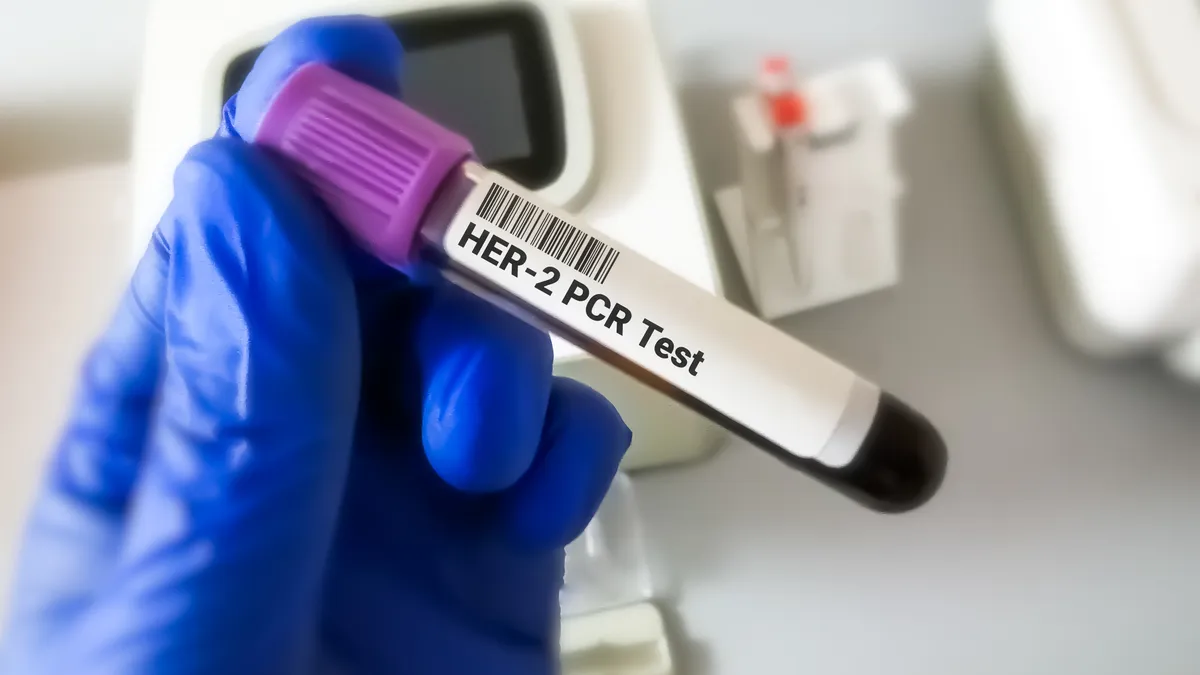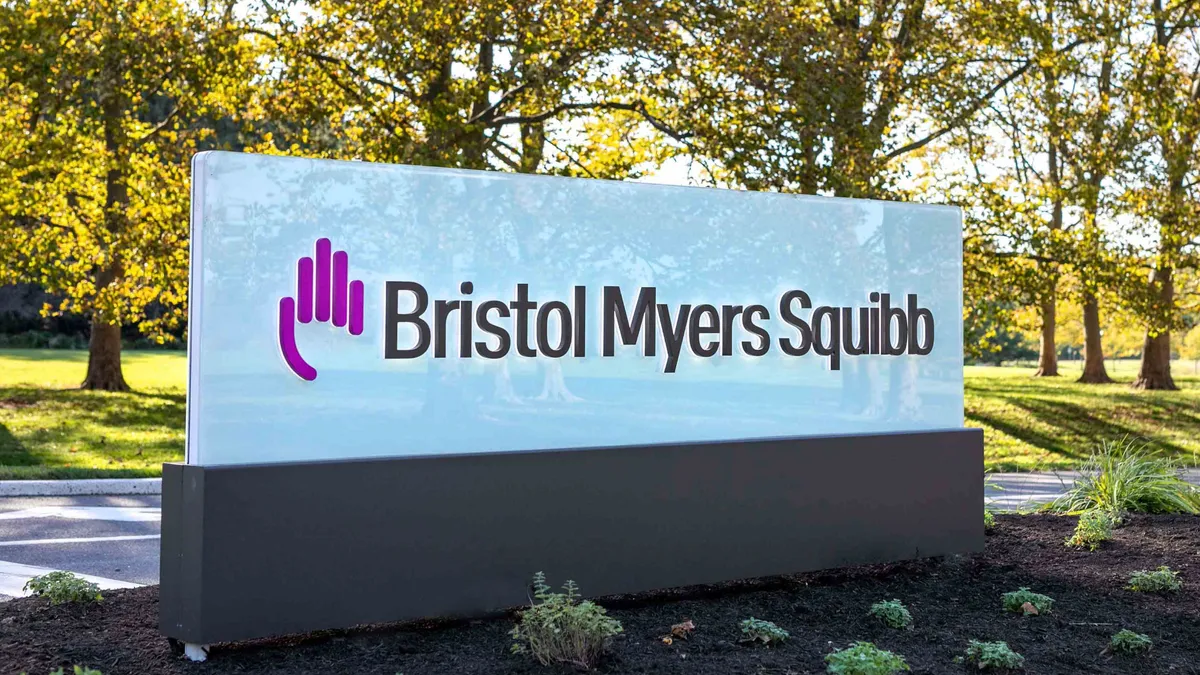The Food and Drug Administration could soon decide on whether to make AstraZeneca and Daiichi Sankyo’s drug Enhertu available for any solid tumor with a specific genetic signature.
The partners on Monday said the FDA is reviewing their request to approve Enhertu for adults with unresectable or metastatic tumors that express the protein HER2. Patients who previously received another therapy or who have “no satisfactory alternative” treatment option would be eligible, the companies said.
The FDA is evaluating the drug via a “real-time oncology review,” which allows the agency to begin assessing an application before it is completed. A decision could come in the second quarter, the companies said.
If granted, an approval would break new ground for antibody-drug conjugates, a class of targeted cancer medicines that includes Enhertu and has come of age in recent years.
ADC drug research is now one of the most competitive areas of oncology. Technical advances and an uptick in approvals has brought intense interest in the drugs, which are designed to target tumors while sparing healthy tissue. Large drugmakers have spent billions of dollars on partnerships or acquisitions to grow their presence in the field.
Enhertu, for instance, was born out of an alliance between AstraZeneca and Daiichi. The drug delivers a toxin to tumor cells expressing HER2, a well-known cancer protein. Since 2019, it’s been cleared for use in breast, lung and gastric tumors. Along the way, it changed how some breast cancers are treated, becoming the first medicine specifically cleared for patients with low, but still detectable, levels of the HER2 protein. The drug broke $1 billion in annual revenue in 2022.
Since then, Enhertu succeeded in a “basket” trial of patients with HER2-expressing cancer that originated in a variety of different tissues. The study is part of a shift to describe cancers by their genetics, and by drugmakers to test therapies that go after those DNA fingerprints. The targeted medicines Rozlytrek and Vitrakvi, for instance, won “tumor agnostic” approvals based on their ability to treat cancers with certain genetic abnormalities. Immunotherapies like Keytruda have also won similar OKs.
Enhertu could become the first ADC with such an approval, and could accelerate testing for HER2 expression in tumors that the genetic mutation is not as often associated with.
“Biomarkers for HER2 expression are already established in breast and gastric cancers, but we must now define them across tumor types,” said Susan Galbraith, AstraZeneca’s head of oncology R&D, in a statement.











